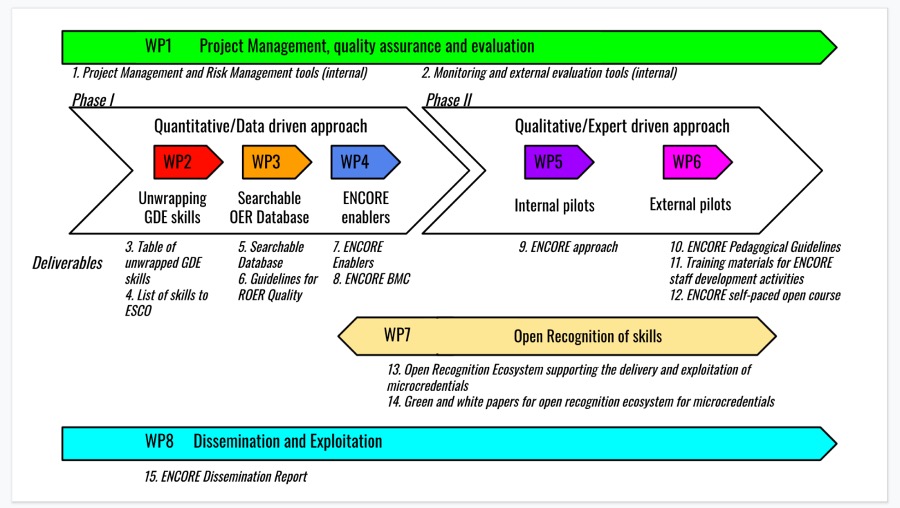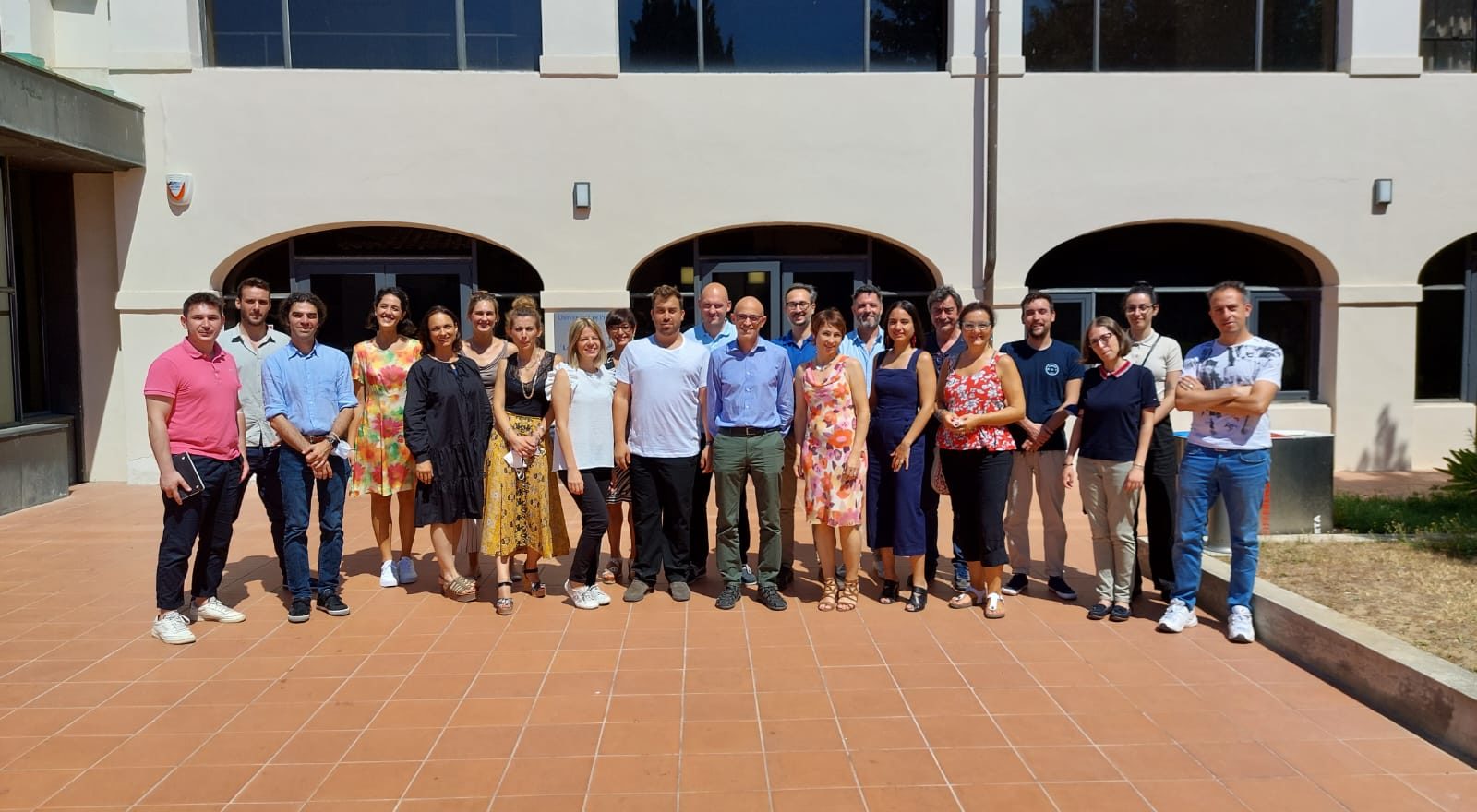Designing innovative teaching: the ENCORE project is kicking off
Coordinated by the University of Pisa, it involves European universities, institutions and companies. FBK is among the partners of the initiative thanks to the contribution of Antonio Bucchiarone (MoDiS) and Gianluca Schiavo (i3)
With the kick-off meeting held in Pisa on July 5 and 6 2022, the ERASMUS+ ENCORE project was launched, led by the University of Pisa. It aims to develop instructional design support tools to be provided to educators. These tools will be based on the reuse of open educational content integrated with information and categorized by skill areas, thanks to Artificial Intelligence tools.
The ENCORE working group, whose acronym stands for ENriching Circular use of OeR for Education, is composed of five universities (University of Pisa, University of Salamanca, Chalmers University, University of Padua, Hellenic Open University); three vocational training providers (Knowledge Foundation at Reutlingen University, Mylia and Adecco Training France); three labor market actors (ValueDo, Beam Me Up and Reconnaitre-Open Recognition Alliance); a research institute (Fondazione Bruno Kessler) and an NGO (European Association of Distance Learning Universities).
The entities involved will have a great deal of responsibility in the first phase of the project, which will have a data-driven approach, with the University of Pisa responsible for defining the GDE (Green, Digital and Entrepreneurial) competencies, the University of Salamanca responsible for defining the resource database, and FBK developing the technology to make these technologies customizable and accessible to users. In the second phase (led by pedagogy experts), the University of Padua will be responsible for defining the ENCORE approach. All educational service providers, led by Chalmers University, will be equally involved in internal and external testing.

FBK researchers Antonio Bucchiarone (MoDiS) and Gianluca Schiavo (i3) are responsible for WP4. WP4 will take into account quantitative approaches, and guidelines promoted by experts in the field, to create an interface between the open educational resource database and educators. In particular, FBK will use Artificial Intelligence and Gamification techniques to support educators in the process of defining and monitoring dedicated courses for their students. These solutions are expected to facilitate learning, encourage motivation and engagement, improve student participation and cooperation, and stimulate them to acquire the skills they are meant to pursue.



